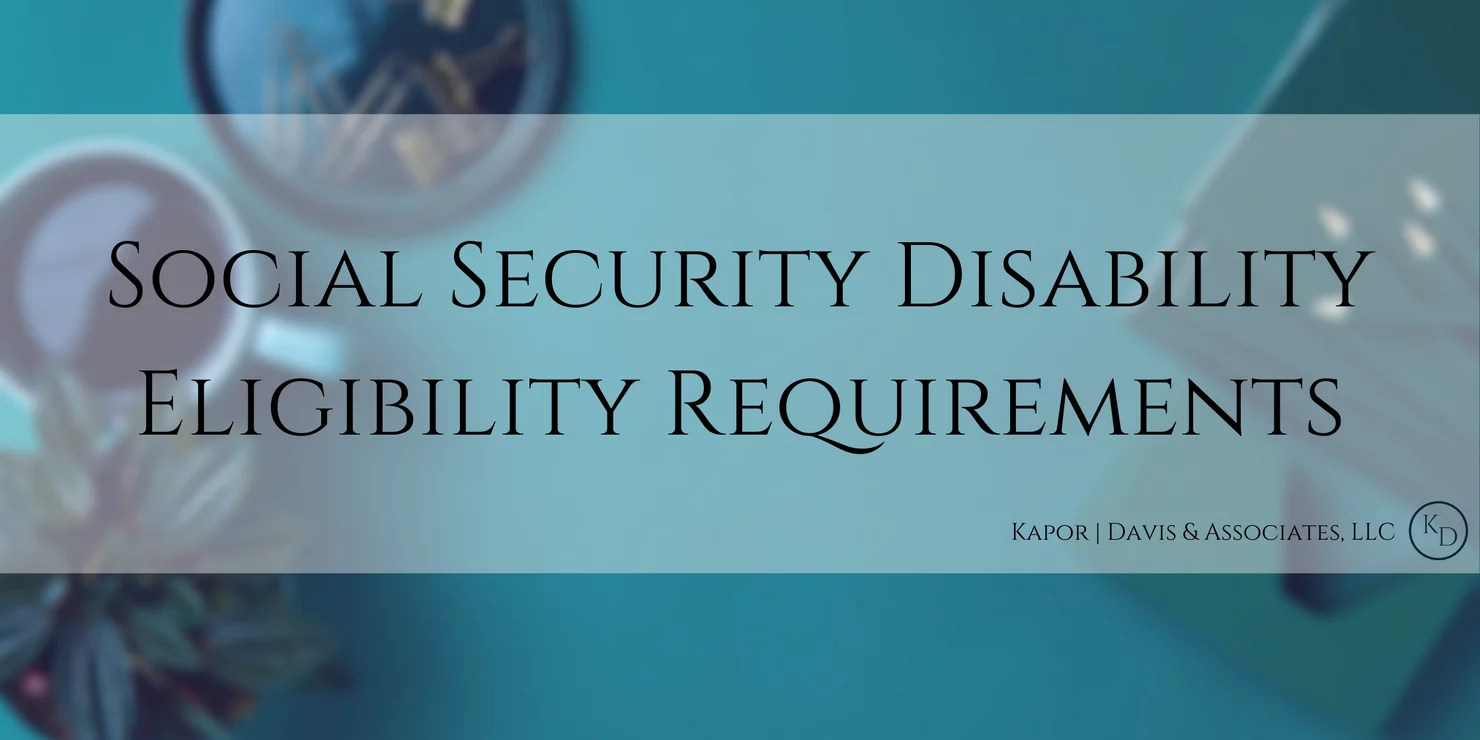Social Security Disability Eligibility – Do I Qualify?
July 3, 2022

To qualify for Social Security Disability Insurance (SSDI) and/or Supplemental Security Income (SSI), claimants need to prove that they meet certain criteria. Specifically, someone who files for Social Security Disability, SSDI or SSI, needs to meet both medical requirements and non-medical requirements.
While those requirements can differ slightly between the two disability programs, they are upheld for everyone who applies for those programs.
What Medical Requirements Do I Need?
The medical requirements to qualify for both SSDI and SSI are the same. They are defined by the Social Security Administration:
- You must have a medically determinable disability that substantially limits your ability to maintain gainful employment.
- Your medical condition must either be terminal or be reasonably expected to last at least 12 months.
To help you better understand if you qualify, let’s break these down further:
A “medically determinable disability” is one that has been consistently documented in your medical records. The Social Security Administration will request records from all of your treating physicians so they may accurately access the claims you made on your application.
To “substantially limit your ability to maintain gainful employment,” means just that.
Do your medical issues prevent you from working? “Substantial gainful employment” is a little more specific.
- Substantial – you perform a full range of mental and physical activities of the job you hold.
- Gainful – you are being paid to this work
The time frame is relatively straightforward. If you have been experiencing a medical issue for at least 1 year, or you are expected to be experiencing that medical issue for at least 1 year, you meet that medical requirement for SSDI benefits eligibility.
It is important to note, that there are not specific medical issues that can guarantee that you will be awarded benefits. Oftentimes, Social Security does not have a entirety of your medical records, nor have they effectively evaluated them.
An applicant is rarely awarded benefits after their initial application. The SSD appeals process is typically the next step.
What Non-Medical Requirements Do I Need?
The following requirements for SSDI benefits eligibility are the same for SSI eligibility, too:
- Does your income reach the level of substantial gainful activity?
The rule is that an applicant must be unable to perform substantial gainful activity. More specifically, if you are working more than 30 hours a week or making more than $2190 a month, you would be automatically denied benefits because you would be performing substantial gainful activity. Read more about Substantial Gainful Activity here. - Are you able to prove you cannot do your previous work AND other types of work?
You must be able to prove, via medical records, treating physicians’ opinions, and consultative examinations that evaluate your functional abilities, that you cannot do your previous jobs. On top of that, you must be able to prove that you can’t return to a different type of work. Factors considered in this decision are medical records, current abilities, education, and your age. Learn more about this requirement here.
An Important SSDI Non-Medical Requirement
In order to qualify for SSDI benefits eligibility, you must have worked “long enough – and recently enough – under Social Security,” according to the SSA. First and foremost, your previous job needed to contribute to Social Security. If your job didn’t take Social Security taxes out of your paycheck, you will not qualify.
Social Security judges this requirement by “work credits,” which are based on your total income, and you can earn up to 4 credits a year. You must have worked 5 out of the last 10 years, which would mean you’ve earned 20 out of a possible 40 work credits.
The amount of money you need to have earn in order to qualify for a work credit varies throughout the year. For example, to earn a work credit in 2021 you need to earn $1470.
See here for minimum payment requirements.
Need Support During the Social Security Disability Application Process?
As you can probably tell, these requirements can sometimes be a little difficult to work out, and some don’t seem to be particularly specific. That is the nature of Social Security Disability eligibility. No one’s impairments are identical; therefore, there cannot be a one size fits all “standard” for SSDI and SSI benefits for eligibility.
We recommend hiring an experienced representative who can create the best case for your specific claim.
Give us a call at Kapor | Davis & Associates for a free consultation.

